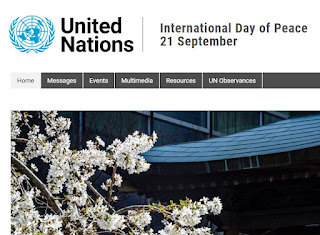Rotary Peace Center event targets Zimbabwean journalists
I had a great time today talking with 30 Zimbabwean
reporters about peace journalism, and the state of media in their country.
After my presentation about the deficits of traditional
reporting and the principles of peace journalism, we held an interesting
question and answer session. One theme was repeated several times—the
difficulty of practicing any journalism (let alone peace journalism) in a
country where media are only partially free.
Zimbabwe is ranked 130th in the world in press freedom,
according to Reporters Without Borders (RSF). In their country report, RSF
writes that Zimbabwe President Emmerson Mnangagwa “was notorious for suppressing
dissent when he was national security minister and his first steps with regard
to press freedom have been marked more by promises than anything like the
concrete progress for which that journalists had hoped. Access to information
has improved and self-censorship has declined, but journalists are still often
attacked or arrested.”
My response, to seek as much incremental change as possible, is always the
same when I am teaching in restrictive environments, whether in Zimbabwe,
Kuwait, or Sudan. I see peace journalism as an ideal, something to strive for.
There are obstacles to PJ in every country, though these vary in number and
severity. Even in Zimbabwe, I said, small steps can be taken that reflect peace
journalism principles that will be perceived as non-threatening by the government. These PJ steps include giving a voice to the voiceless, leading
societal discussions about solutions, rejecting inflammatory language, and
offering counternarratives that build bridges between groups, rather than
exacerbating societal divisions.
My session today was part of a peace journalism training
program sponsored by the Rotary Peace Center at Makerere University in Kampala,
Uganda. The project is headed up by Rotary Peace Fellow Patience Rusare. The
project will continue until December. My next presentation, on media
polarization and PJ, will be Oct. 1.


